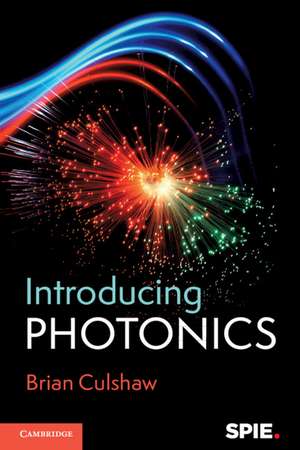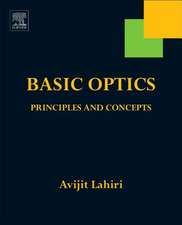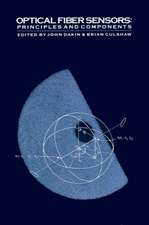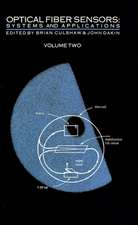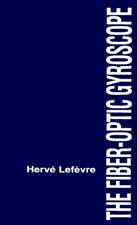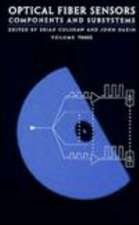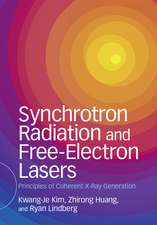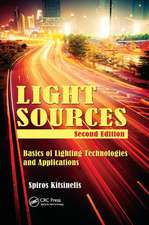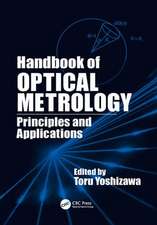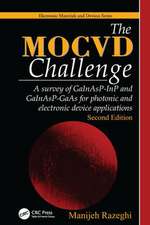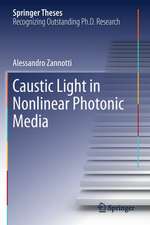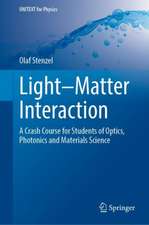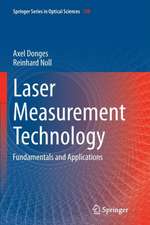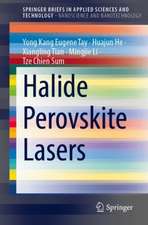Introducing Photonics
Autor Brian Culshawen Limba Engleză Paperback – 29 iul 2020
| Toate formatele și edițiile | Preț | Express |
|---|---|---|
| Paperback (1) | 286.42 lei 3-5 săpt. | +13.96 lei 4-10 zile |
| Cambridge University Press – 29 iul 2020 | 286.42 lei 3-5 săpt. | +13.96 lei 4-10 zile |
| Hardback (1) | 459.38 lei 6-8 săpt. | |
| Cambridge University Press – 29 iul 2020 | 459.38 lei 6-8 săpt. |
Preț: 286.42 lei
Nou
Puncte Express: 430
Preț estimativ în valută:
54.81€ • 56.63$ • 45.62£
54.81€ • 56.63$ • 45.62£
Carte disponibilă
Livrare economică 04-18 martie
Livrare express 15-21 februarie pentru 23.95 lei
Preluare comenzi: 021 569.72.76
Specificații
ISBN-13: 9781316609415
ISBN-10: 1316609413
Pagini: 174
Dimensiuni: 150 x 228 x 10 mm
Greutate: 0.23 kg
Editura: Cambridge University Press
Colecția Cambridge University Press
Locul publicării:Cambridge, United Kingdom
ISBN-10: 1316609413
Pagini: 174
Dimensiuni: 150 x 228 x 10 mm
Greutate: 0.23 kg
Editura: Cambridge University Press
Colecția Cambridge University Press
Locul publicării:Cambridge, United Kingdom
Cuprins
1. Photonics: an introduction; 2. The nature of light; 3. Light interacting with materials; 4. Light interacting with structures; 5. Photonic tools; 6. The future.
Recenzii
'Professor Brian Culshaw has written a non-mathematical textbook that introduces the fundamentals of how light interacts with matter and reviews many of the diverse applications of optical systems in everyday life. This book is thus written at a level appropriate for undergraduate science or engineering students. Although advanced mathematical concepts are invoked … mathematical derivations are avoided and simple explanations are used throughout the book. The author reviews the interactions between light and matter … and then considers how the length scale of structures or features in matter can influence this interaction … a review of the many applications of photonics, ranging from lighting, digital communication, to even metal welding and cutting … Hence Introducing Photonics manages to successfully convey the diversity, excitement, and impact of photonic applications in modern society, without the mathematical details.' Kent D. Choquette, University of Illinois, Urbana-Champaign
'In a rather crowded field of books on photonics, this one stands out in a few ways. First, although the text does not shy away from including the relevant mathematical equations, the focus is on conceptually understanding the phenomena-keeping the mathematical aspects as accessible as possible. Second, the book is written by a longstanding contributor to photonics research, from the vantage point of his 40 years in the field … There are helpful hints at the end of the book on how to go about solving the challenges, and the reader who takes the time to engage with them and with this book will emerge with a much deeper understanding of the field … the conversational and easy to follow writing style, as well as some applications of photonics that might surprise … This is an excellent book for the professional as well as for the student looking to learn about photonics.' Bogdan Hoanca, Optics and Photonics News
'Brian Culshaw of Strathclyde University has been a long-time contributor to both photonics and ultrasonics. This book, Introducing Photonics, shares with the reader some of the knowledge about photonics the author has accumulated over his long career. The book contains much more on the optical properties of materials than many other books on this subject. I recommend the book to anyone who would like to benefit from the author's experience teaching photonics and performing cutting-edge research in this field.' Joseph Goodman, Stanford University
'The book that we were waiting for! The book that only a few very experienced people world-wide are capable to write! The book that we were waiting for to understand and/or clarify key photonic concepts in very easy, efficient and effective way! A key book for beginnings into the science and technology of light (photonics). It is an excellent tool for undergraduate students that aim to get a rapid, clear and effective view of photonic essential concepts, that also works for anyone to 'refresh', efficiently, the fundamentals and technologies of light!' Jose Miguel Lopez Higuera, University of Cantabria
'This book aims to introduce undergraduates to photonics and does it in a different and interesting format compared to typical textbooks. The author discusses many diverse topics in photonics together with achievements made possible by today's optical technology and what will be possible in the future photonics world. This book will encourage students to explore the ever-expanding field of photonics.' David A. Jackson, University of Kent
'Professor Brian Culshaw has been dealing with these issues for over 40 years, hence his knowledge transfer is extremely intuitive, deeply thought out … The minimal mathematical apparatus present in the book allows the reader to focus on an intuitive understanding of the discussed issue, thus creating an open path for him to search for new own applications. The concepts of ending each chapter with a set of problems for individual decision by the reader should be accepted as extremely valuable here … their correct resolution is a challenge not only for the main recipients of the book - undergraduate students, but also for a wide range of active scientists involved in photonics … an extremely valuable textbook appearing on the market.' Leszek R. Jaroszewicz, Military University of Technology
'Introducing Photonics is an enjoyable and thought-provoking read for all with an interest in this field. This book is an excellent means to augment your existing knowledge and offers stimulating viewpoints on photonics from a long-standing expert in this area.' Kyriacos Kalli, Cyprus University of Technology
'An outstanding book that grasps the essence of photonics. Important concepts, from basic ideas to applications and future possibilities, are perfectly explained with easy language, clear descriptions and concise illustrations. University students in photonics as well as the more mature professionals in related fields will benefit from reading it.' Wei Jin, The Hong Kong Polytechnic University
'Professor Culshaw has written a must-read prime text for anyone considering entering the exciting field of modern-day photonics … all bases are covered … a comprehensive treatment from a fundamental introduction of the concepts behind light theory through to future photonic technologies and trends.' Elfed Lewis, University of Limerick
'This book provides a detailed explanation of the whole of the subject. It presents a new approach, concentrating on physical ideas, and developing them to explain more complex phenomena. This book is essential reading for practitioners, researchers, or students of physics and engineering whose work involves any of the large number of application areas touched by Introducing Photonics.' Yanbiao Liao, Tsinghua University
'The refreshing, intuitive style of this book makes it an excellent first text on light-based science and technology. Without sacrificing rigor, Introducing Photonics makes the field easily approachable; students with little more than basic science training will find this an enlightening and enjoyable text. Thought-provoking exercises challenge one to solve complete problems, rather than just use formulas to arrive at numerical answers by rote. In the final chapters, a sweeping panorama of current and future applications and innovations inspires the reader with the excitement and promise of the burgeoning field covered by this book: photonics, 'the electronics of the 21st Century'.' R. A. Lieberman, Lumoptix LLC
'We are just at the beginning of the age of light, the most sustainable and challenging age ever. Nothing like photonics has already changed and is still going to change for centuries our way of living, interacting, communicating, moving, caring and feeding ourselves. This book is a valuable and timely guide to review the key concepts of photonics and related applications through intuitive explanations and straightforward problems to check the understanding. From the basics of light-matter interaction, the reader is guided through consolidated photonic tools to the most advanced and intriguing devices, envisioning that the best of photonics has yet to come.' Anna Grazia Mignani, National Research Council (CNR), Italy
'Drawing on his vast experience in photonics research and innovation, Brian Culshaw presents the fundamental principles of photonics in an accessible manner, with end-of-chapter problems to reinforce the learning objectives. This is certain to be the go-to book for all students starting out in the field of photonics.' Sinéad O'Keeffe, University of Limerick
'Introducing Photonics is a surprising book! The profound and appealing way in which fundamental concepts are presented and what follows from them … is remarkable, as well as the elegance and proximity with which the text is written. At the end of each chapter a set of enlightening problems is proposed … its purpose is to induce thought and reflection on a particular phenomenon in the field of optics and photonics, as well as possible technological applications that may result from it. The book is also prospective in a crystalline way regarding the future of photonics in its multiple areas, revealing from his author a deep knowledge and insight of the field … an inestimable book to guide and inspire a generation of students and practitioners in the field of optics/photonics.' José Luís Santos, University of Porto
'Brian Culshaw, in Introducing Photonics, succeeds in presenting a wide range of important topics in a clear, concise and effective manner that will be welcomed by students and technical workers. The linkages to real world applications throughout the text, problems and recommended readings serve as an effective entry point into this important field that has changed the world.' Eric Udd, Columbia Gorge Research LLC
'In a rather crowded field of books on photonics, this one stands out in a few ways. First, although the text does not shy away from including the relevant mathematical equations, the focus is on conceptually understanding the phenomena-keeping the mathematical aspects as accessible as possible. Second, the book is written by a longstanding contributor to photonics research, from the vantage point of his 40 years in the field … There are helpful hints at the end of the book on how to go about solving the challenges, and the reader who takes the time to engage with them and with this book will emerge with a much deeper understanding of the field … the conversational and easy to follow writing style, as well as some applications of photonics that might surprise … This is an excellent book for the professional as well as for the student looking to learn about photonics.' Bogdan Hoanca, Optics and Photonics News
'Brian Culshaw of Strathclyde University has been a long-time contributor to both photonics and ultrasonics. This book, Introducing Photonics, shares with the reader some of the knowledge about photonics the author has accumulated over his long career. The book contains much more on the optical properties of materials than many other books on this subject. I recommend the book to anyone who would like to benefit from the author's experience teaching photonics and performing cutting-edge research in this field.' Joseph Goodman, Stanford University
'The book that we were waiting for! The book that only a few very experienced people world-wide are capable to write! The book that we were waiting for to understand and/or clarify key photonic concepts in very easy, efficient and effective way! A key book for beginnings into the science and technology of light (photonics). It is an excellent tool for undergraduate students that aim to get a rapid, clear and effective view of photonic essential concepts, that also works for anyone to 'refresh', efficiently, the fundamentals and technologies of light!' Jose Miguel Lopez Higuera, University of Cantabria
'This book aims to introduce undergraduates to photonics and does it in a different and interesting format compared to typical textbooks. The author discusses many diverse topics in photonics together with achievements made possible by today's optical technology and what will be possible in the future photonics world. This book will encourage students to explore the ever-expanding field of photonics.' David A. Jackson, University of Kent
'Professor Brian Culshaw has been dealing with these issues for over 40 years, hence his knowledge transfer is extremely intuitive, deeply thought out … The minimal mathematical apparatus present in the book allows the reader to focus on an intuitive understanding of the discussed issue, thus creating an open path for him to search for new own applications. The concepts of ending each chapter with a set of problems for individual decision by the reader should be accepted as extremely valuable here … their correct resolution is a challenge not only for the main recipients of the book - undergraduate students, but also for a wide range of active scientists involved in photonics … an extremely valuable textbook appearing on the market.' Leszek R. Jaroszewicz, Military University of Technology
'Introducing Photonics is an enjoyable and thought-provoking read for all with an interest in this field. This book is an excellent means to augment your existing knowledge and offers stimulating viewpoints on photonics from a long-standing expert in this area.' Kyriacos Kalli, Cyprus University of Technology
'An outstanding book that grasps the essence of photonics. Important concepts, from basic ideas to applications and future possibilities, are perfectly explained with easy language, clear descriptions and concise illustrations. University students in photonics as well as the more mature professionals in related fields will benefit from reading it.' Wei Jin, The Hong Kong Polytechnic University
'Professor Culshaw has written a must-read prime text for anyone considering entering the exciting field of modern-day photonics … all bases are covered … a comprehensive treatment from a fundamental introduction of the concepts behind light theory through to future photonic technologies and trends.' Elfed Lewis, University of Limerick
'This book provides a detailed explanation of the whole of the subject. It presents a new approach, concentrating on physical ideas, and developing them to explain more complex phenomena. This book is essential reading for practitioners, researchers, or students of physics and engineering whose work involves any of the large number of application areas touched by Introducing Photonics.' Yanbiao Liao, Tsinghua University
'The refreshing, intuitive style of this book makes it an excellent first text on light-based science and technology. Without sacrificing rigor, Introducing Photonics makes the field easily approachable; students with little more than basic science training will find this an enlightening and enjoyable text. Thought-provoking exercises challenge one to solve complete problems, rather than just use formulas to arrive at numerical answers by rote. In the final chapters, a sweeping panorama of current and future applications and innovations inspires the reader with the excitement and promise of the burgeoning field covered by this book: photonics, 'the electronics of the 21st Century'.' R. A. Lieberman, Lumoptix LLC
'We are just at the beginning of the age of light, the most sustainable and challenging age ever. Nothing like photonics has already changed and is still going to change for centuries our way of living, interacting, communicating, moving, caring and feeding ourselves. This book is a valuable and timely guide to review the key concepts of photonics and related applications through intuitive explanations and straightforward problems to check the understanding. From the basics of light-matter interaction, the reader is guided through consolidated photonic tools to the most advanced and intriguing devices, envisioning that the best of photonics has yet to come.' Anna Grazia Mignani, National Research Council (CNR), Italy
'Drawing on his vast experience in photonics research and innovation, Brian Culshaw presents the fundamental principles of photonics in an accessible manner, with end-of-chapter problems to reinforce the learning objectives. This is certain to be the go-to book for all students starting out in the field of photonics.' Sinéad O'Keeffe, University of Limerick
'Introducing Photonics is a surprising book! The profound and appealing way in which fundamental concepts are presented and what follows from them … is remarkable, as well as the elegance and proximity with which the text is written. At the end of each chapter a set of enlightening problems is proposed … its purpose is to induce thought and reflection on a particular phenomenon in the field of optics and photonics, as well as possible technological applications that may result from it. The book is also prospective in a crystalline way regarding the future of photonics in its multiple areas, revealing from his author a deep knowledge and insight of the field … an inestimable book to guide and inspire a generation of students and practitioners in the field of optics/photonics.' José Luís Santos, University of Porto
'Brian Culshaw, in Introducing Photonics, succeeds in presenting a wide range of important topics in a clear, concise and effective manner that will be welcomed by students and technical workers. The linkages to real world applications throughout the text, problems and recommended readings serve as an effective entry point into this important field that has changed the world.' Eric Udd, Columbia Gorge Research LLC
Notă biografică
Descriere
A concise, accessible guide explaining the essential ideas underlying photonics and how they relate to photonic devices and systems.
